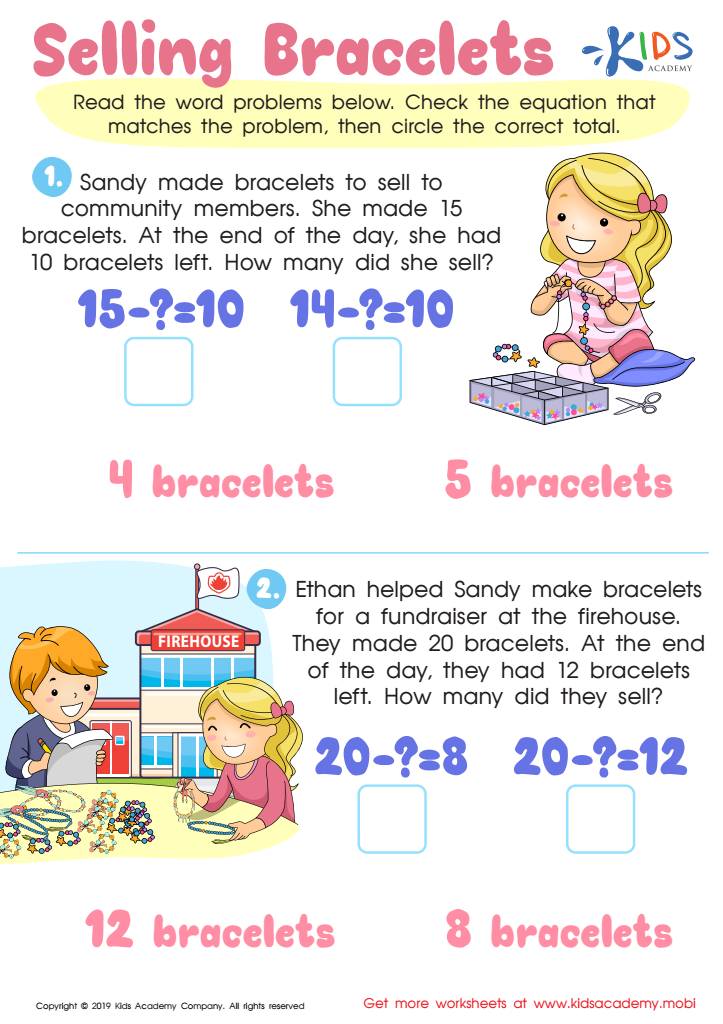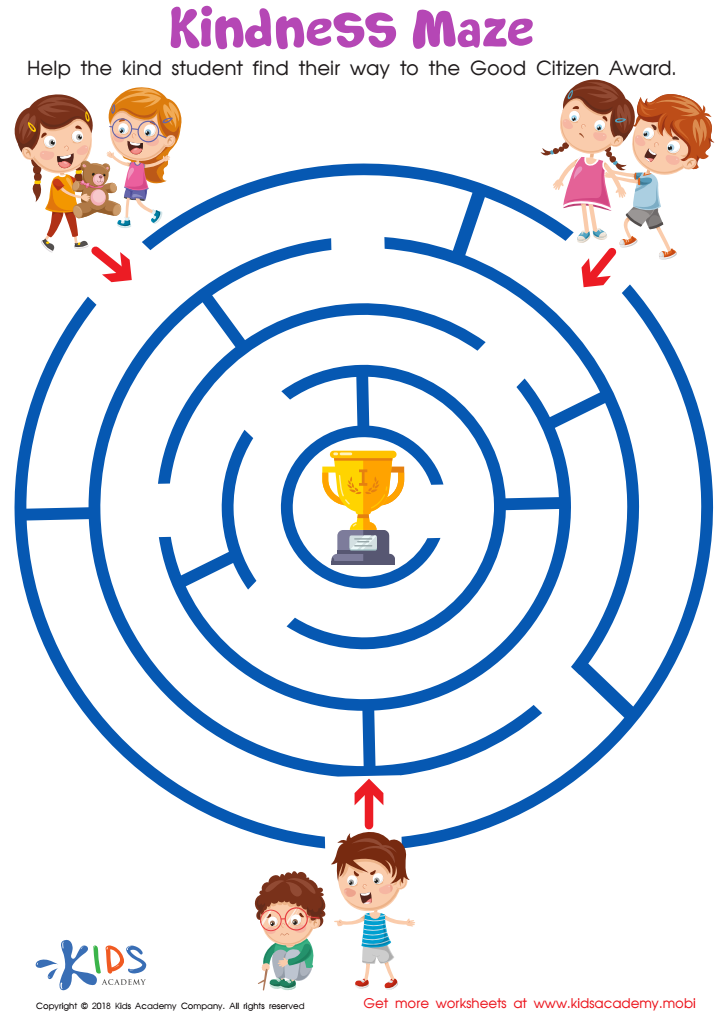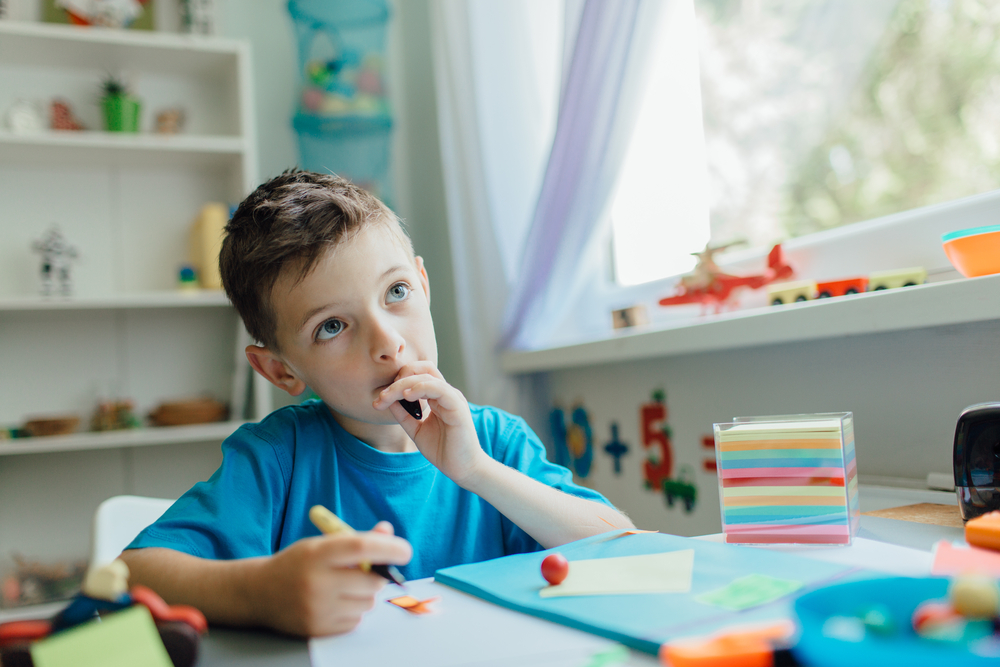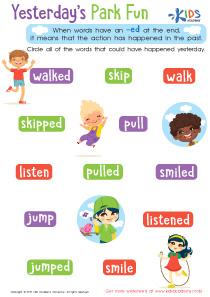Problem-Solving Skills Easy Kindergarten Worksheets - Page 2
27 filtered results
-
From - To


Enrichment: Firefighter Ladders Worksheet


Selling the Bracelets Worksheet


Kindness Maze Worksheet
Problem-solving skills are vital for early childhood development and significantly impact a child's future learning in school. For parents and teachers, fostering problem-solving skills in kindergarten lays the foundation for critical thinking and independence. These skills encourage children to explore different ways to tackle challenges, promoting cognitive growth and creativity.
Teaching young children how to approach problems helps them develop resilience and perseverance. When faced with obstacles, kids learn to assess the situation, brainstorm solutions, and test their ideas. This not only enhances their academic skills, such as math and science comprehension, but also boosts their confidence and self-efficacy.
Additionally, problem-solving fosters social skills as children often work in groups to resolve conflicts or collaborate on tasks, enhancing their teamwork abilities. Moreover, these skills are essential for real-life situations, equipping children to navigate challenges effectively as they grow older.
By prioritizing problem-solving skills in kindergarten, parents and teachers equip children with tools that will serve them throughout life. Investing in this aspect of education means nurturing responsible, innovative, and adaptable individuals, which benefits society as a whole. Thus, fostering strong problem-solving skills at this stage is crucial for holistic child development.
 Assign to My Students
Assign to My Students




















